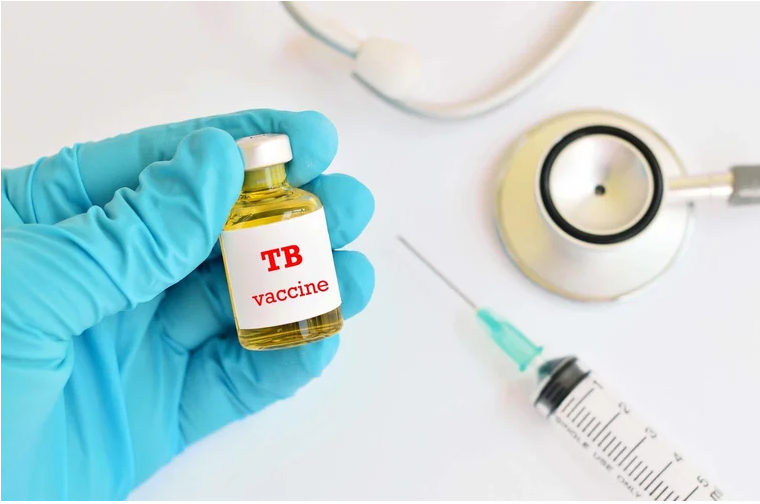
A Program for strengthening diagnosis of Tuberculosis seeks to increase case detection in the Americas.The goal is to contribute to reducing the gap in TB case detection in the Americas by strengthening the TB Laboratory Network in the Americas diagnostic capacity.
The “TB Laboratory Network Strengthening” Program, financed by the Global Fund to fight against AIDS, Tuberculosis and Malaria, is based on and fully aligned with the Global End TB Strategy and the Americas Regional Action Plan for Tuberculosis. The aim is to strengthen the three supranational research laboratories (SRLs) located in Argentina (National Institute of Infectious Diseases, Buenos Aires), Chile (Institute of Public Health, Santiago) and Mexico (Institute of Epidemiological Diagnosis and Reference, Mexico City) that serve the majority of the TB national laboratory networks (NLNs) in Latin America and Caribbean, in order to increase the diagnosis capacities in twenty TB national laboratory networks (NLNs) from Argentina, Belize, Bolivia, Chile, Colombia, Costa Rica, Cuba, Ecuador, El Salvador, Guatemala, Guyana, Honduras, México, Nicaragua, Panamá, Paraguay, Peru, Dominica Republic, Uruguay and Venezuela.
Program activities started on January 2017 and will extend until December 2019, including interventions such as procurement of diagnostics equipment and supplies to improve capacity in the three SRLs as well as establishing quality control through an annual external assessment of drugs sensitivity in order to define MDR/XDR-TB resistance patterns in samples provided by NLN to the pertinent SRL.
In addition, the SRLs improved role as technical assistance providers to the NLNs through at set of technical assistance activities conducted by their professional staff to seventeen countries during 2017. Furthermore, NLNs professionals will be participating in the internship programmed activities at their respective SRLs in 2018.
“With regard to the program activities implementation, we are trying to contribute to achieving the Global End TB Strategy Targets, supporting countries commitments that represent an ambitious challenge. That is why the program activities include high-level TB advocacy efforts not only at national level but also at the regional and Sub-regional level to achieve political and technical sustainability” said, Lourdes Kusunoki Fuero, Project Coordinator.
During the first year of the Program, complementary to other research studies performed by international organizations, three studies were conducted to obtain suitable information about timely measures to be addressed in order to support activities included in their TB control programs.
The studies were:
•“Structure and functioning of TB National Laboratory Network in the Americas Region”
•“Supranational research laboratories functioning related costs within the TB National Laboratory Network”
•“Situation analysis of the Information Systems in the Supranational Research Laboratories, National Laboratory of Reference and TB National Laboratory Network”
The Andean Health Organization (Organismo Andino de Salud – Convenio Hipólito Unanue / ORAS-CONHU) was selected as Principal Recipient in charge of financial resource management. This entity was created in 1971 in order to integrate the Health sector of the Andean Sub-Region. The ORAS-CONHU is co-chaired by six Ministers of Health from Andean countries (REMSAA) and the Executive Secretary is located in Lima, Peru. PAHO, with its technical expertise, and the Dominican Republic and Central America Ministries of Health Council (COMISCA), with head office in San Salvador, El Salvador, were selected as Sub-recipients.
“Main identified challenges within the project are related to the prioritization of the Laboratories TB Control Programs through their financial sustainability and human resources capacity building, solve huge inequities in wealth distribution, address the problem through a universal access and right to health approach, strengthened health governance, increased ministries leadership and intersectoral work to address social determinants related to health and the structural roots that exceed TB” highlighted Kusunoki Fuero.
WHAT IS PANCAP?
PANCAP is a Caribbean regional partnership of governments, regional civil society organisations, regional institutions and organisations, bilateral and multilateral agencies and contributing donor partners established on 14 February 2001. PANCAP provides a structured and unified approach to the Caribbean’s response to the HIV epidemic, and coordinates the response through the Caribbean Regional Strategic Framework on HIV and AIDS to maximise efficient use of resources and increase impact, mobilise resources and build the capacity of partners.
What are the Global AIDS Strategy 2021–2026 targets and commitments?
If targets and commitments in the strategy are achieved:
- The number of people who newly acquire HIV will decrease from 1.7 million in 2019 to less than 370 000 by 2025
- The number of people dying from AIDS-related illnesses will decrease from 690 000 in 2019 to less than 250 000 in 2025.
- The goal of eliminating new HIV infections among children will see the number of new HIV infections drop from 150,000 in 2019 to less than 22,000 in 2025.
What are the 95-95-95 Targets for ending AIDS?
- 95% of People Living with HIV know their HIV status;
- 95% of people who know their status on treatment; and
- 95% of people on treatment with suppressed viral loads.
HELPFUL LINKS:
Global AIDS Strategy 2021–2026, End Inequalities, End AIDS
https://pancap.org/pancap-documents/global-aids-strategy-2021-2026-end-inequalities-end-aids/
Caribbean Regional Strategic Framework on HIV and AIDS (CRSF) 2019-2025
https://pancap.org/pancap-documents/caribbean-regional-strategic-framework-2019-2025/
